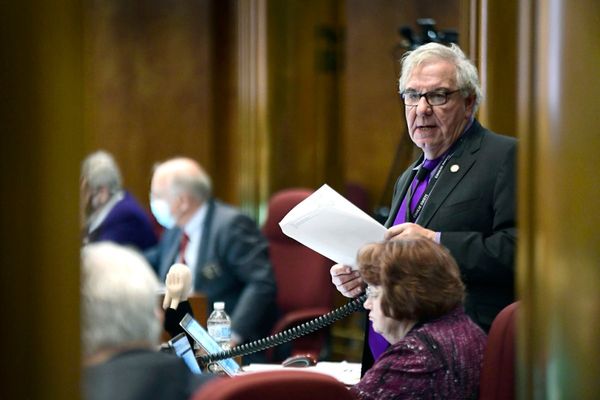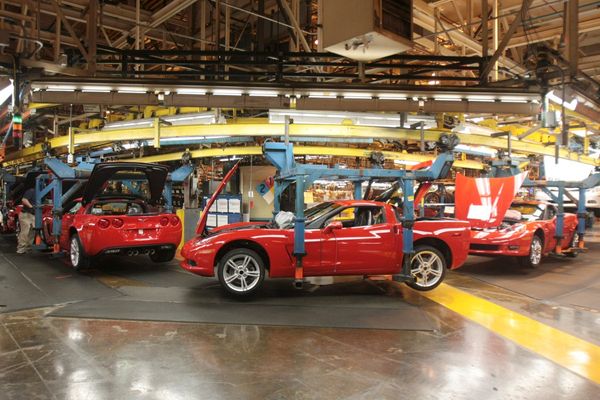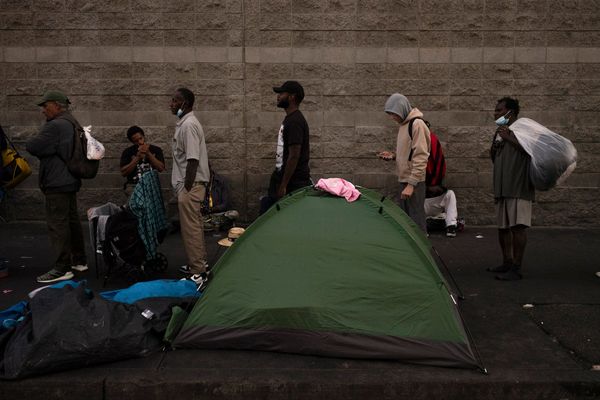
As the age-old debate over contrasting styles rages again at the Rugby World Cup – whether power and physicality trump poise and panache – Courtney Lawes has detailed how England’s maligned approach fits in.
It is a topic never far from the surface and at major tournaments it tends to rear its head again. So it came as no shock to hear comments made by the New Zealand head coach, Ian Foster, after the All Blacks’ 96-17 thrashing of Italy on Friday.
Taking aim at Ireland’s attritional, full-blooded win against South Africa six days earlier, he said: “If you look at [that] game, it was a different game of rugby. The ball was in play for 27 minutes throughout the whole game. It was a very stop-start game, very physical, very combative.
“You saw a different spectacle tonight and at some point the world has got to decide which game it would rather watch.”
To no one’s surprise Rassie Erasmus, the Springboks’ director of rugby, waded into the debate on social media. On this occasion, however, he struck a more cordial tone than usual, nonetheless highlighting how New Zealand’s dismantling of Italy had two more minutes’ ball-in-play time and explaining how South Africa’s defeat by Ireland was his game of choice.
England, for their part, are the only team confirmed as pool winners to date and one of two sides to have guaranteed their place in the last eight. But they have been booed by their supporters for the manner in which they put boot to ball in the 34‑12 win against Japan. They have conceded one try but still their followers want more.
If their victory against Chile was more eye-catching they are expected to revert to type somewhat in Saturday’s final pool match against Samoa as they fine-tune for their quarter-final, most probably against Fiji. Lawes, however, is unapologetic about England’s approach.

“We’re a really strong defensive team,” he said. “That’s our backbone. We’ve conceded one try in three games. We’re an aerial kicking team and are very good at getting the ball back. We’re looking to build an attack off that. Hopefully by the time we get later on in the tournament that is where we want to be and we will show a bit of a different side to us.
“I like that it’s now really obvious every team’s DNA and what they’re trying to do. All the top teams have got really different genetics as a team, if you will – a team strategy.
“It’ll be interesting when they play each other how that is going to play out. I think that’s really good for us as players to see and be a part of. It’s really good for the fanbase to see as a spectacle as well.
“The Ireland-South Africa game, France-New Zealand on the first night of the World Cup, are huge for the game. Every team has a different strategy, DNA and different way of playing, which is really good to see.”
Lawes is clear on England’s DNA then but trying to discern it during their four warm-up fixtures was a thankless task during disappointing defeats by Wales, Ireland and Fiji. Lawes, however, has echoed comments made by their strength and conditioning coach, Aled Walters, insisting England are reaping the rewards of their short-term pain in August.
“I wouldn’t say it was worrying because we knew we had done all the hard yakka,” he said. “We went into most of those games tired and it’s quite hard to play rugby when you’re tired, funnily enough. But we had a good foundation. We had worked really hard in pre-season and we knew that.
“We knew it would start to click for us. We said it after every game; after every loss. We said we would do everything we could to make sure that when the World Cup kicks off, we are firing – and we did that.
We just stuck to it. We never gave up and we’ve given ourselves a really good shot to go on and do something really great.”







